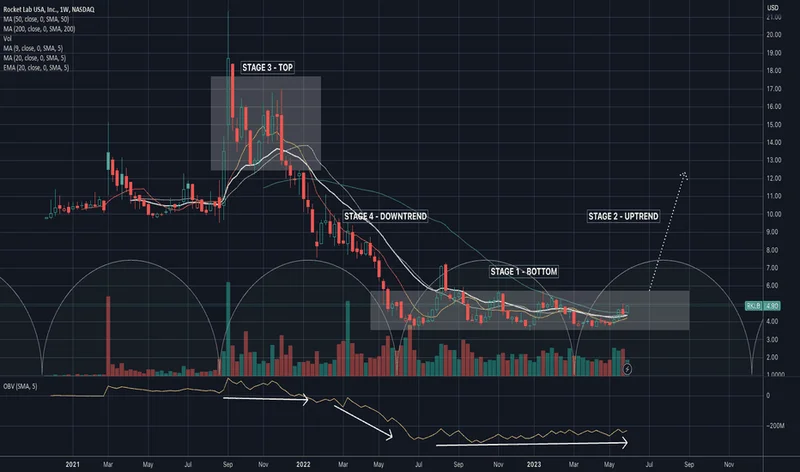Rocket Lab's (RKLB) Stock Surge: An Analyst's Breakdown of the Catalyst
Rocket Lab's Latest Deal Isn't About Satellites—It's About Customer Capture
The market registered the news from Rocket Lab this week with a clear, unambiguous signal. On Wednesday morning, shares of RKLB were trading up 7.27% to $65.99 before the opening bell (Why Is Rocket Lab Stock Surging Wednesday?). The catalyst was a new multi-launch agreement with Japanese earth-imaging firm iQPS. On the surface, it’s a standard piece of aerospace business: three dedicated Electron missions to launch SAR satellites, starting in 2026.
But the market isn't reacting to three launches. That's a rounding error in the grand scheme of a company's valuation. The market is reacting to a pattern—a carefully constructed business model that is now yielding quantifiable, repeatable results.
This announcement isn't about the hardware, the satellites, or even the revenue from this specific contract. It’s about customer capture. Rocket Lab is systematically converting one-off clients into something that looks a lot more like a subscriber. And in any business, the cost of acquiring a customer is far higher than the cost of retaining one. What we’re seeing is the validation of a strategy focused on retention.
Deconstructing the Cadence
Let’s look at the numbers. The new deal brings the total number of upcoming iQPS launches booked with Rocket Lab to seven. This is layered on top of a significant existing relationship. Rocket Lab has already completed four launches for this same client in 2025 alone. You can almost hear the rhythmic thump of the launch cadence from their New Zealand complex—one rocket away, the next one already being prepped on the pad. Two of those missions occurred within a remarkable four-week span this past spring. Another is slated for November.
This isn't a company shopping around for the best price on a single launch. This is an operational dependency. IQPS isn't just buying a ride to space; it's outsourcing its entire launch division to a single, trusted provider. Rocket Lab’s stated goal is to support 20 or more missions in 2025—to be more exact, their production and launch infrastructure has been scaled specifically to meet that target. This isn't a theoretical capability; the iQPS launch history is the proof.
The entire operation is a masterclass in building a platform, not just a product. It’s analogous to the early days of cloud computing. A company might have first bought a single server from Amazon Web Services to run a small application. Soon, they were using AWS for storage, then databases, then specialized machine learning tools. The convenience and integration created a powerful lock-in. Rocket Lab is doing the same for orbit. A client comes for a launch, but they stay for the ecosystem. They stay for the proprietary Motorized Lightband separation system, the streamlined logistics, and the proven reliability of a provider that can launch their assets on a tight, predictable schedule.

Why would you go through the hassle of integrating your satellite with another company’s rocket when you have a provider that functions like a dedicated pipeline to space?
The Economics of Reliability
Rocket Lab CEO Peter Beck’s statement that the deal offers iQPS a "highly-integrated launch service" is corporate speak, but it's accurate. It points to a vertical integration strategy that eliminates variables. When the launch provider also builds the satellite separation system and operates the launch pad, the points of failure and communication overhead for the customer are drastically reduced. This integration is the product. The rocket is just the delivery mechanism.
And this is the part of the analysis that I find genuinely compelling. I've looked at hundreds of these filings and partnership announcements over the years, and the language here, combined with the operational tempo, signifies a shift. It’s a move away from the transactional nature of launch contracts and toward a deeply embedded, service-based relationship. IQPS is building a 36-satellite constellation. That requires a launch cadence that is not just rapid, but, above all, predictable. A delay of several months waiting for a slot on a larger rocket could have cascading financial and operational consequences for their business.
This level of dependency, however, invites some critical questions that the press release doesn't answer. For Rocket Lab, how does this accelerated cadence impact mission assurance? The risk of a launch failure is never zero, and a string of rapid successes can sometimes breed complacency. Is their quality control scaling as effectively as their production line? For iQPS, what are the strategic risks of becoming so reliant on a single provider? Vendor lock-in feels efficient until your vendor has a problem. We have no data on what contingency plans, if any, they have in place.
Still, the market's positive reaction suggests investors are comfortable with the trade-off. The strategy is clearly resonating with them (investors can gain exposure through vehicles like the SPDR S&P Kensho Final Frontiers ETF). They see a company that isn't just chasing one-off, high-margin launches, but is instead building a foundation of recurring, predictable revenue by becoming an indispensable utility for its key customers.
The Subscription Model for Space
Let’s be clear. The most important number in this week’s announcement is not three (the number of new missions) or seven (the total upcoming missions). The most important number is one: the number of providers iQPS trusts to build out the backbone of its constellation. Rocket Lab has successfully moved beyond being a vendor and has become a strategic partner. They are not selling launches; they are selling certainty. In the volatile business of space, that is the most valuable commodity there is, and it's the closest this industry has come to a true subscription model. This deal is simply the latest proof point that the model is working.
Tags: rklb stock
The Metro Mattress Shutdown: An Analysis of the Company's Collapse
Next PostThe Orvis Legacy: From Fly Rods to Dog Beds, What Makes the Brand Endure
Related Articles
